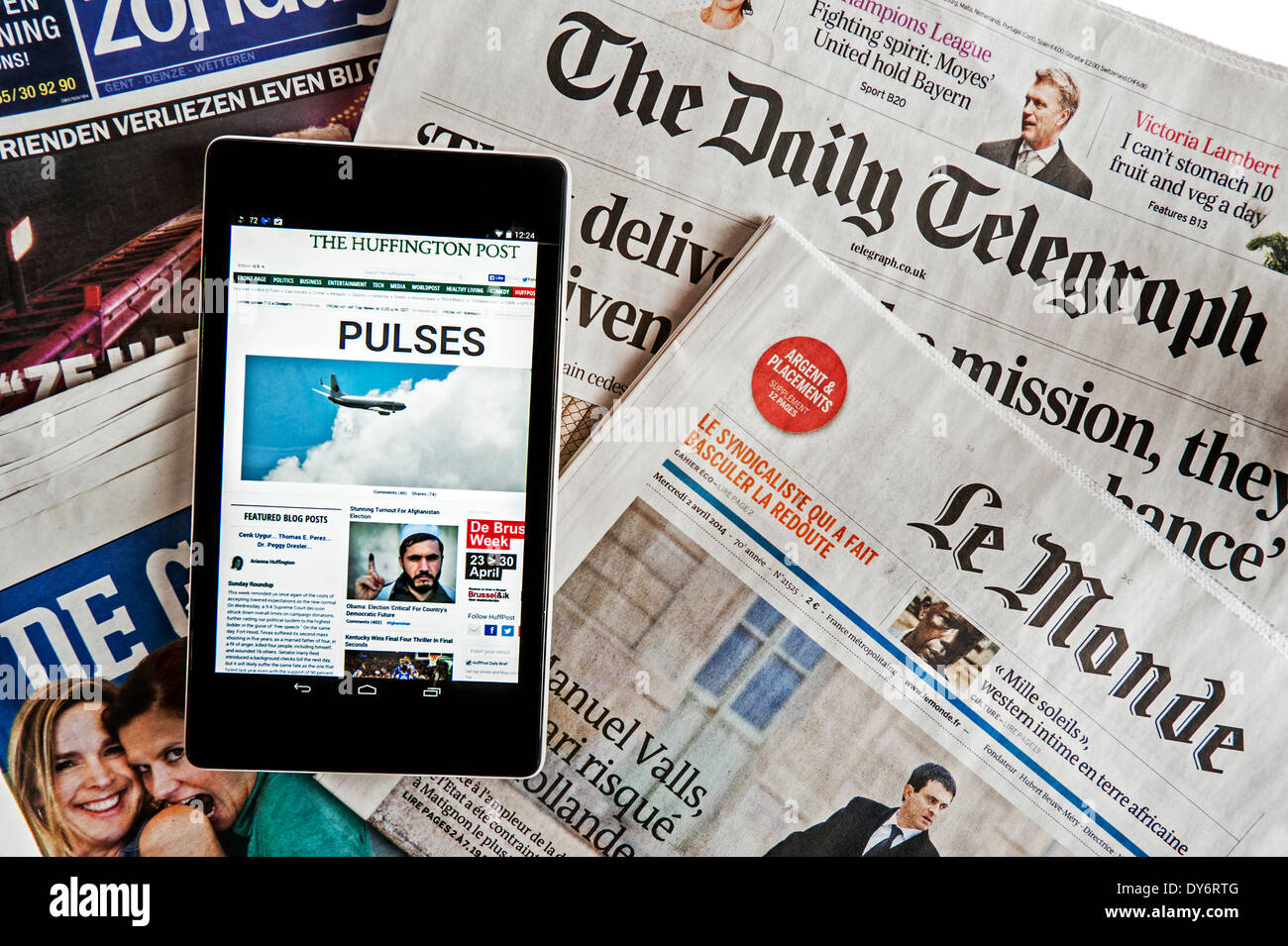The Importance of Fact-Checking on the planet of News Online
The occurrence of false information in today's on-line news landscape has actually gotten to alarming levels. Fact-checking organizations play an important duty in counteracting this fad. They confirm claims and improve the credibility of journalism. Nevertheless, the performance of these organizations frequently rests on their techniques and public assumption. As target markets browse this intricate environment, the effects of their findings may shape the future of news usage and depend on. What does this mean for the integrity of info progressing?

The Rise of False Information in the Digital Age
Just how has the introduction of digital technology added to the spread of misinformation? The rapid development of the net and social networks platforms has actually assisted in the dissemination of information at an unprecedented rate. Individuals can share posts, video clips, and point of views with a plain click, usually without confirming the web content's accuracy. Formulas prioritize spectacular or mentally charged material, bring about an expansion of deceptive narratives that capture attention.
Furthermore, the anonymity managed by electronic platforms permits people to spread out incorrect info without liability (stnews.live). False information prospers in echo chambers, where users are revealed largely to perspectives that reinforce their ideas, even more setting frauds. The saturation of info can bewilder individuals, making it challenging to recognize credible resources from unreliable ones. Consequently, misinformation has become a prevalent concern in the electronic landscape, influencing public opinion and trust fund in reputable news sources
The Duty of Fact-Checking Organizations
Fact-checking companies play a necessary function in boosting the trustworthiness of journalism by verifying claims made in report. Their efforts are important in combating false information, making certain that precise information prevails in the electronic landscape. By holding media outlets accountable, these companies contribute substantially to notified public discourse.
Enhancing Integrity in Journalism
While false information multiplies in the digital age, fact-checking companies play a vital duty in improving the reputation of journalism. These companies meticulously confirm claims made in news write-ups, public statements, and social media sites articles, making certain that information distributed to the general public is accurate and reliable. By offering independent assessments, they work as an essential source for journalists, helping them maintain high standards of honesty. Additionally, their efforts advertise openness in media, promoting public trust fund. As target markets end up being progressively critical, the existence of trustworthy fact-checking entities can differentiate trusted news sources from those that might spread out falsehoods. Eventually, the dedication of fact-checking companies to copyright reliability is critical for the health and wellness of autonomous discussion.
Combating Misinformation Successfully
As false information remains to spread out rapidly across electronic platforms, the role of fact-checking companies ends up being increasingly important in the battle for accurate information. These companies work as guard dogs, inspecting claims made by somebodies and media electrical outlets to guarantee liability. By employing rigorous research study methods and expert evaluation, they verify facts and clarify misleading narratives. Their findings are disseminated through different channels, enlightening the general public and cultivating crucial thinking. Additionally, partnerships with social media systems boost their reach, permitting prompt flagging of incorrect details. As electronic literacy expands, the impact of fact-checking companies is necessary in encouraging audiences to recognize truth from falsehood, ultimately contributing to an extra informed society.
How False Information Affects Public Perception
Misinformation substantially threatens count on media, leading target markets to doubt the reliability of news resources. Because of this, individuals typically are attracted in the direction of electrical outlets that enhance their present ideas, contributing to the polarization of viewpoints. This dynamic develops a fragmented details landscape, where shared understanding comes to be progressively difficult to attain.
Count on Media

Depend on in media has actually become progressively delicate in the digital age, where the rapid spread of incorrect info can alter public assumption. As misinformation proliferates across social media and on the internet systems, target markets commonly discover it challenging to determine legitimate resources from unstable ones. This uncertainty promotes hesitation, leading many individuals to examine the intentions behind news coverage. Trust in established media outlets has actually reduced, as consumers progressively turn to alternate resources that may lack extensive content standards. This disintegration of depend on not just affects specific ideas however additionally undermines the cumulative capability to take part in notified conversations. Inevitably, the integrity of journalism goes to stake, highlighting the essential demand for effective fact-checking to recover self-confidence in the media landscape.

Polarization of Point of views
The enhancing uncertainty toward typical media has added to an expanding polarization of opinions amongst the general public. Misinformation, typically disseminated via social networks and on the internet systems, plays a significant duty fit distinctive ideological splits. Individuals frequently choose information that straightens with their pre-existing beliefs, strengthening their point of views while dismissing opposing viewpoints. This resemble chamber effect increases divisions, bring about a fragmented public discussion where consensus ends up being significantly evasive. Additionally, sensationalized narratives thrive in this atmosphere, additionally skewing public assumption and promoting distrust in reputable resources. As polarization intensifies, the requirement for reliable fact-checking ends up being paramount to link gaps and promote informed discussions, inevitably ensuring an extra cohesive society qualified of steering complicated issues.
Strategies for Effective Fact-Checking
Efficient fact-checking counts on an organized technique that consists of extensive study, verification of resources, and critical evaluation of claims. A fundamental technique is cross-referencing info from numerous legitimate resources to validate its accuracy. Fact-checkers typically make use of specialized databases and archives to map the beginning of particular statements, ensuring that the reported details aligns with documented evidence.
One more necessary approach involves inspecting the context in which insurance claims are presented. Deceptive information can emerge from out-of-context quotes or selective data use. By taking a look at the broader story, fact-checkers can determine potential predispositions or misinterpretations.
Involving with professionals in relevant areas can provide clarity and insight that improves the fact-checking procedure. This partnership can reveal nuances that laypeople may ignore - stnews.live. Eventually, a self-displined strategy combining these strategies promotes a much more informed public, enhancing the reliability of info distributed in the digital age
The Impact of Social Network on News Usage
How has social networks transformed the way individuals take in news? The appearance of platforms like Facebook, Twitter, and Instagram has especially modified news usage patterns. News is currently disseminated quickly, enabling customers to gain access to real-time updates and engage with material through sort, shares, and read this post here comments. This immediacy has cultivated a preference for bite-sized information, typically at the expenditure of thorough evaluation.
In addition, social networks allows customized news feeds, where formulas curate content based upon customer preferences, producing resemble chambers that may limit exposure to diverse viewpoints. The role of typical news outlets has actually lessened as read this article people significantly rely upon peer suggestions and trending subjects. Consequently, the reliability of details is often jeopardized, as sensationalism can outweigh accurate coverage. In general, social media sites has improved news intake, highlighting rate and personalization while testing the requirements of journalistic integrity.
Empowering Target Markets to Determine Reliable Sources

In addition, analyzing the authorship and organizational history of news articles can disclose possible prejudices. Cross-referencing information throughout several trusted electrical outlets additionally enhances the confirmation procedure. Making use of electronic tools, such as internet browser expansions that rank the trustworthiness of web sites, can also aid in determining trustworthy information. By proactively engaging with these resources and growing an essential frame of mind, audiences can better equip themselves to determine trusted news resources, ultimately promoting a much more informed culture in the middle of the complexities these days's media atmosphere.
The Future of Journalism and Fact-Checking
As the media landscape evolves, the future of journalism and fact-checking faces both tests and possibilities. The rise of digital platforms has equalized details circulation, enabling diverse voices to arise. This has additionally led to the expansion of misinformation, necessitating durable fact-checking mechanisms. Journalists will increasingly depend on technology, consisting of AI tools, to validate realities quickly and efficiently.
Partnership in between wire service and fact-checking entities is prepared for to enhance reliability and openness. Target market involvement will certainly play a crucial duty, as informed viewers end up being considerable companions in recognizing credible content.
The need for liability and accuracy is most likely to expand, pushing reporters to support high standards in their reporting. Inevitably, the future of journalism may depend upon its capability to adjust to technological innovations while maintaining journalistic stability, ensuring that fact-checking continues to be a foundation of trustworthy news.
Often Asked Inquiries
How Can I Report False Information I Come Across Online?
To report misinformation come across online, individuals can use platform-specific reporting tools, provide clear proof, and share the info with fact-checking companies. Involving with area discussions can additionally help elevate recognition regarding the false information.
What Prevail Indications of False Information in News Articles?
Usual signs of false information in news posts consist of sensational headings, absence of reputable sources, emotional language, inconsistent realities, and absence of author qualifications. Readers must seriously examine web content for these indicators to discern precision.
Just How Do Fact-Checkers Validate Resources?
Fact-checkers verify sources by cross-referencing details with internet legitimate databases, getting in touch with experts, and analyzing the initial context of claims. They also evaluate the dependability of the sources, ensuring accurate and reliable information for public intake.
What Lawsuits Can Be Taken Against False information?
Lawsuits versus misinformation might consist of disparagement claims, cease-and-desist orders, and regulatory penalties. Targets can prosecute through civil courts, while some jurisdictions impose fines or assents on platforms sharing incorrect info.
Are There Apps for Fact-Checking News On-The-Go?
Many apps exist for fact-checking news on-the-go, consisting of Snopes, FactCheck.org, and PolitiFact. These applications aid individuals verify claims swiftly, advertising notified decision-making and cultivating an extra discerning technique to consuming news in real-time.